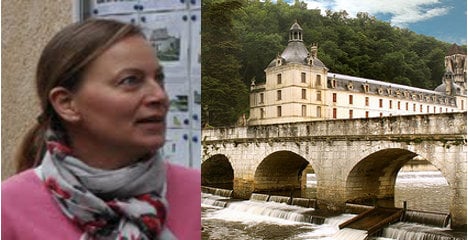How did you end up living in Dordogne?
I was working in London and my now husband was in Ireland. I didn't want to go back and he didn't want to come to London so after much to-ing and fro-ing he said: 'Why don't we move to Paris'? We spent several fabulous years in the romantic city. One weekend we decided to go and visit some friends in the Dordogne and the rest, as they say, is history.
So what kept you in the Dordogne?
Our idea was to go back to Paris after the renovation of a barn we had bought, however the conversion took much longer than initially expected and at the same time our love for the Dordogne grew and is still there. We have always said if we don't like it we will go elsewhere, but when from time to time we weigh up what we love about being here or miss about being elsewhere then Dordogne still wins hands down.
Sell the Dordogne to us.
Well, the travel links to the area are great for a start. It's very easy to get down here from Paris on a train from Gare d'Austerlitz. There's great variety here. The Dordogne is rich in culture and history. The food is great here and there's a lot of interesting people living here, who are attracted by the diverse nature of the region. When you weigh everything up, there's nowhere better to live.
What’s the very first place you always take visitors?
We live in the north of the Dordogne department, so my number one stop for visitors is Brantome, a beautiful town set on the river Drone and referred to as the 'Venice of the Perigord'. It has a wealth of Gallo-Roman and Carolingian remains and apparently the oldest bell tower in France. Its Abbey was rebuilt in the thirteenth and fifteenth centuries But it's not just beautiful to see it also has some of my favourite eateries so remains a favourite of both my guests and I.
Anywhere else you like to take people?
It has got to be a stop-off in St Jean de Cole where I am also lucky enough to work. It's a Medieval village and gonged as one of France's most beautiful villages. It is particularly stunning during the second weekend of June when it hosts a Floralie and the village is bedecked in flowers.
Now that we know where you like to show your visitors, where in the Dordogne do you keep all to yourself?
If I have a bit of time to myself, I often head of to Perigueux and into the old quarter where the once wealthy merchant houses have now been converted into boutique shops and restaurants. I love ambling round the alleyways and trying desperately not to come home 'bankrupt' with bags full of beautiful garments I will never wear. Life in the Dordogne tends to be very informal. It's for calm creatures like me who love the history and natural beauty and where wellington boots reign over stilettos.
Where do you go when you get hungry?
Hmm, that depends who's paying! If my husband is feeling romantic he knows the Moulin du Roc in Champagnac de Belair remains one of my all-time favourite restaurants. The riverside setting and beautiful grounds are wonderful on a summer evening when you can eat in the gardens, but equally in winter, the interconnecting dining rooms and original character features of this converted mill permit a cosy and intimate feel. And the food is inspired and delicious.
Equally, if we just want something simple but good, we may pop into the Fiddlers Rest which offers a varied pub grub menu. From our much-loved classic 'fish n chips' to Sunday lunch or Thai Chilli. This isn't as awful as it may sound and the French themselves appreciate that these British classics are in fact very good.
Where is a good place to take kids?
Corgnac sur l'isle is a great place. There is a sand beach, where children can go paddling and there is also a converted old train track where you can travel up and down on old rail trolleys. There's also a lake nearby where children can go canoeing and do other activities.
What advice would you give to someone thinking of moving to the Dordogne?
Stop thinking about it and do it. If they are looking to buy a house from abroad and they have the cash then one thing they should think about is booking ahead a fixed exchange rate. The rates for the euro are fluctuating so much but if you can put €30,000 down on a house then you can forward book the exchange rate to try to get a good deal.
Cate Carnduff works for Dordogne-based estate agents Herman de Graaf.
If you would like to share some of the highlights of where you live as part of our My France series please email [email protected]



 Please whitelist us to continue reading.
Please whitelist us to continue reading.
Member comments